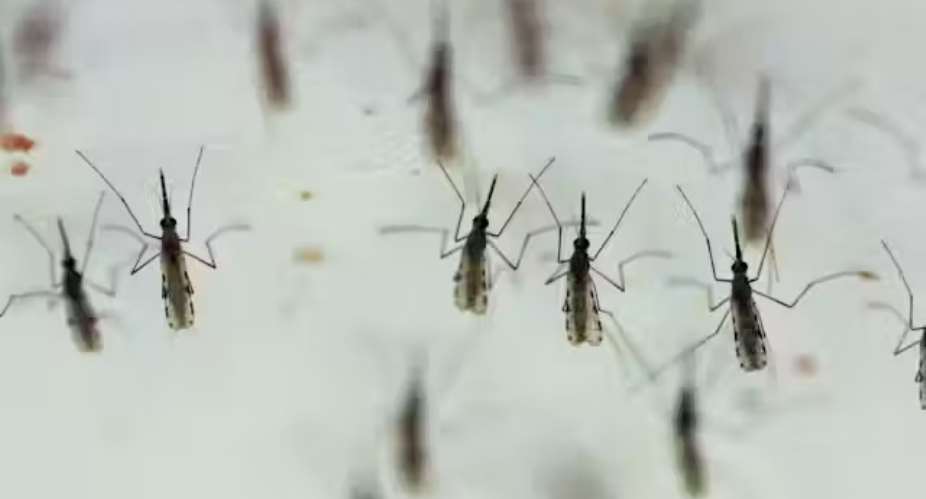Mosquitoes surpass all other animals as the leading cause of human deaths annually. According to the World Malaria Report (2023), Africa is the most affected region, accounting for 94% of global malaria cases and 95% of related fatalities.
One innovative approach in the battle against malaria involves genetic modification. Global research initiatives are exploring the use of genetically engineered mosquitoes to address the disease’s impact in Africa. Abdoulaye Diabaté, a prominent medical entomologist and malaria expert, is spearheading these studies, detailing the technology’s mechanisms and the progress of his research.
The Drive Behind Abdoulaye Diabaté’s Malaria Research
Abdoulaye Diabaté’s commitment to malaria research stems from his experiences in N’Dorola, Burkina Faso, where malaria is a persistent issue each rainy season. Having survived the disease as a child, while losing two close relatives to it, Diabaté is deeply motivated by the profound personal and communal impact of malaria. In 2022 alone, Africa saw half a million malaria-related deaths, predominantly affecting children and pregnant women, with a child’s life claimed every minute.
This backdrop fuels Diabaté’s work with the Target Malaria team, based at the Research Institute in Health Sciences (IRSS) in Bobo-Dioulasso. The team is dedicated to reducing malaria-transmitting mosquito populations in sub-Saharan Africa through cutting-edge genetic technologies.
Genetic Technologies: A New Weapon in Malaria Control
With over 3,500 mosquito species globally, and more than 800 in Africa, three primary species—Anopheles gambiae, Anopheles coluzzii, and Anopheles arabiensis—are major malaria vectors. Genetic technologies hold promise in combating malaria by potentially reducing the populations of these disease-spreading mosquitoes.
In 2019, a significant experiment in Burkina Faso involved releasing genetically modified male mosquitoes designed to be sterile. These males could mate with wild females but would not produce viable offspring due to a gene modification that prevents egg hatching. This trial, while not aimed at immediate malaria control, was essential for gathering data and refining future interventions.

Aiming for Population Suppression
The research focuses on “population suppression,” which aims to reduce the number of malaria-carrying mosquitoes to halt disease transmission. This approach involves a “gene drive” system, which increases the probability that a specific gene will be passed on to future generations more frequently than through normal inheritance. While typical inheritance rates are 50/50, gene drive systems can push this probability to over 99%, leading to a higher prevalence of the desired trait in the mosquito population over time.
One notable project aims to create mosquitoes with a gene drive that renders females sterile. By releasing these altered mosquitoes, they can mate with wild mosquitoes and transmit the gene to their offspring. If both parents carry the gene, their offspring will be unable to reproduce.
Genetically modified mosquitoes offer benefits over traditional malaria control methods, requiring no changes in local behavior, additional equipment, or reliance on health systems. As an environmental intervention, these mosquitoes naturally spread the genetic modification.
Progress and Future Plans
Current research involves gene drive mosquitoes in European laboratories, designed to affect female fertility. These mosquitoes are undergoing rigorous efficacy and safety evaluations, expected to span several years. Following these studies, approval will be sought for experimental field trials.
In the short term, efforts in Burkina Faso are focused on non-gene drive genetically modified mosquitoes that produce mostly male offspring. A regulatory application has been filed for a controlled release of these mosquitoes within the next two years. Although these mosquitoes won’t impact malaria directly due to their fertility and lack of gene drive technology, the project will provide valuable insights for future research.
Investigating Ecological Impacts
To assess potential ecological effects, Target Malaria has collaborated with the University of Ghana and the University of Oxford. These studies explore the ecological role of Anopheles gambiae, examining whether they are a keystone species, a major food source for predators, or significant pollinators. Preliminary data suggests that Anopheles gambiae has a relatively minor role in its ecosystem.
The ultimate goal remains the eradication of malaria, with extensive risk assessments conducted to ensure the safety and effectiveness of these interventions.


